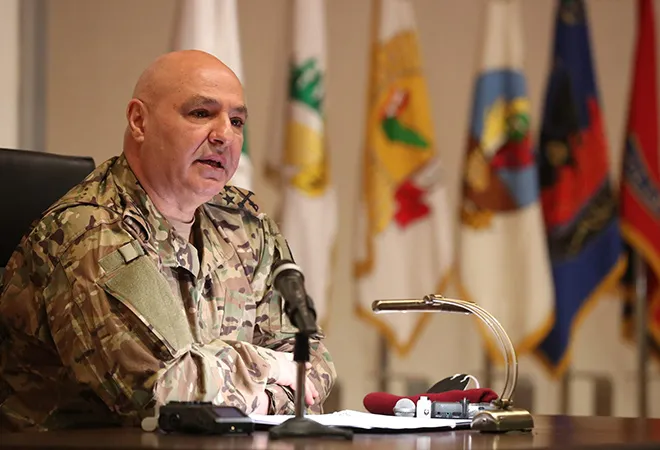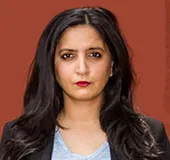
Since Lebanon erupted into protests in 2019 and the protestors highlighted mismanagement by the financial elite and rampant corruption of politicians, Lebanon’s economy has steadily shrunk. The Lebanese pound was pegged at a
fixed exchange rate of 1,5o7 to the dollar back in 1997. While it is still the official rate in the market, it
plummeted to 22,200 last week. Basic commodities are unaffordable, queues for fuel stretch up to miles and power cuts are routine in Lebanon.
However, the economic crisis took a dangerous turn as the country’s soldiers are also finding it hard to feed their children. Lebanon’s Army Chief Joseph Aoun rushed
to France last month and asked the international community for help before it was too late. He warned the Western powers that if not supported, the Lebanese Army might disintegrate and leave a security vacuum on its borders with war-torn Syria and with Israel
. “How can a soldier support a family with a salary that does not exceed US $90?”, the Army Chief asked.
Moreover, experts said an additional concern is that the army might not be effective in stopping
refugees from migration to Europe. Over the last decade, hundreds of thousands of Syrians landed in Europe through boats they boarded on Lebanon’s Mediterranean coast.
Experts said an additional concern is that the army might not be effective in stopping refugees from migration to Europe. Over the last decade, hundreds of thousands of Syrians landed in Europe through boats they boarded on Lebanon’s Mediterranean coast
Before travelling to France, the Army Chief had also publicly admonished Lebanon’s political class. “Where are we going?
What are you waiting for? What do you plan to do? We have warned more than once of the danger of the situation,” he said.
Lebanon’s armed forces reportedly
need US $100 million immediately to cover its soldiers’ basic needs. There are around
80,000 soldiers in Lebanon who used to earn roughly US
$800 converted into Lebanese pounds a month. But that was before the currency devalued. Now, they barely earn a tenth of that. The soldiers, too, have been pushed into poverty and are struggling to make ends meet like most of their civilian compatriots.
France organised an international conference to raise money for Lebanon’s armed forces and has been supplying it with rations and medicines for the past few months. Others like the United States have pledged more support and yet there are concerns it might not be enough to sustain the only institution the people in the country still have faith in.
The suffering of the people, however, seems to have had no effect on Lebanon’s political class. They are quarrelling over cabinet positions and refused to form a government which is essential to hold talks with the International Monetary Fund
and secure a bail-out.
Last week, Saad Hariri, PM-designate, resigned from his position. The dispute was between Hariri and President Michael Aoun’s son-in-law and former Foreign Minister Gebran Bassil who wanted one-third plus one minister in the cabinet to be Christians so he can pull their strings and have a veto power over all legislations. Hariri disagreed and walked out. Since then, several Lebanese analysts and the Army Chief have warned of escalating chaos.
In a report released last month, the World Bank said that Lebanon is going through a severe economic and financial crisis, possibly the third-worst in the world. It said the absence of a fully functioning executive authority threatens a fragile social peace in a country deeply divided on sectarian lines.
“For over a year and a half, Lebanon has been facing compounded challenges: Its largest peace-time economic and financial crisis, COVID-19 and the Port of Beirut explosion,” the report noted. “The World Bank estimates that in 2020 real GDP contracted by 20.3 percent, on the back of a 6.7 percent contraction in 2019.” It added that, “such a brutal contraction is usually associated with conflicts or wars.”
The World Bank estimated that more than half the population of Lebanon is likely to be below the national poverty line, and with the unemployment rate on the rise, a large number of households are facing difficulty in accessing basic services, including healthcare.
The World Bank estimated that more than half the population of Lebanon is likely to be below the national poverty line, and with the unemployment rate on the rise, a large number of households are facing difficulty in accessing basic services, including healthcare.
Despite the World Bank’s grim outlook, Lebanon’s politicians seem unfazed. Another consensus to determine the Prime Minister is unlikely to emerge and without one, neither reforms can be ushered nor a loan from the IMF procured. The next elections are slated to happen next year but by then the living conditions in Lebanon would have worsened immeasurably more.
The views expressed above belong to the author(s). ORF research and analyses now available on Telegram! Click here to access our curated content — blogs, longforms and interviews.



 Since Lebanon erupted into protests in 2019 and the protestors highlighted mismanagement by the financial elite and rampant corruption of politicians, Lebanon’s economy has steadily shrunk. The Lebanese pound was pegged at a
Since Lebanon erupted into protests in 2019 and the protestors highlighted mismanagement by the financial elite and rampant corruption of politicians, Lebanon’s economy has steadily shrunk. The Lebanese pound was pegged at a  PREV
PREV


